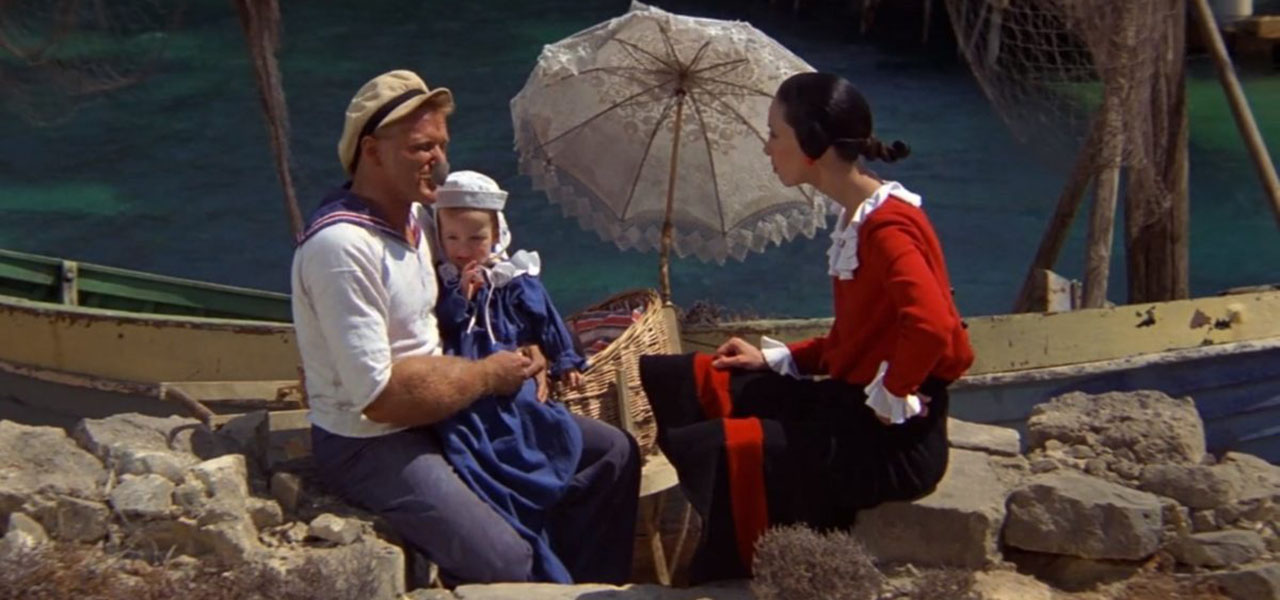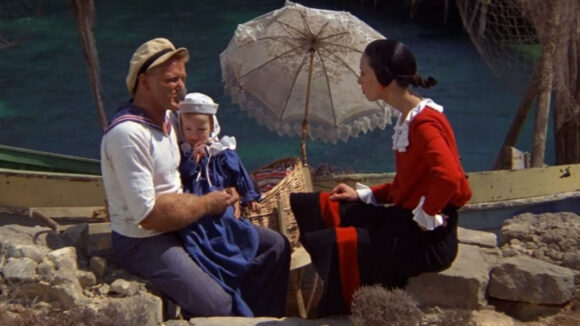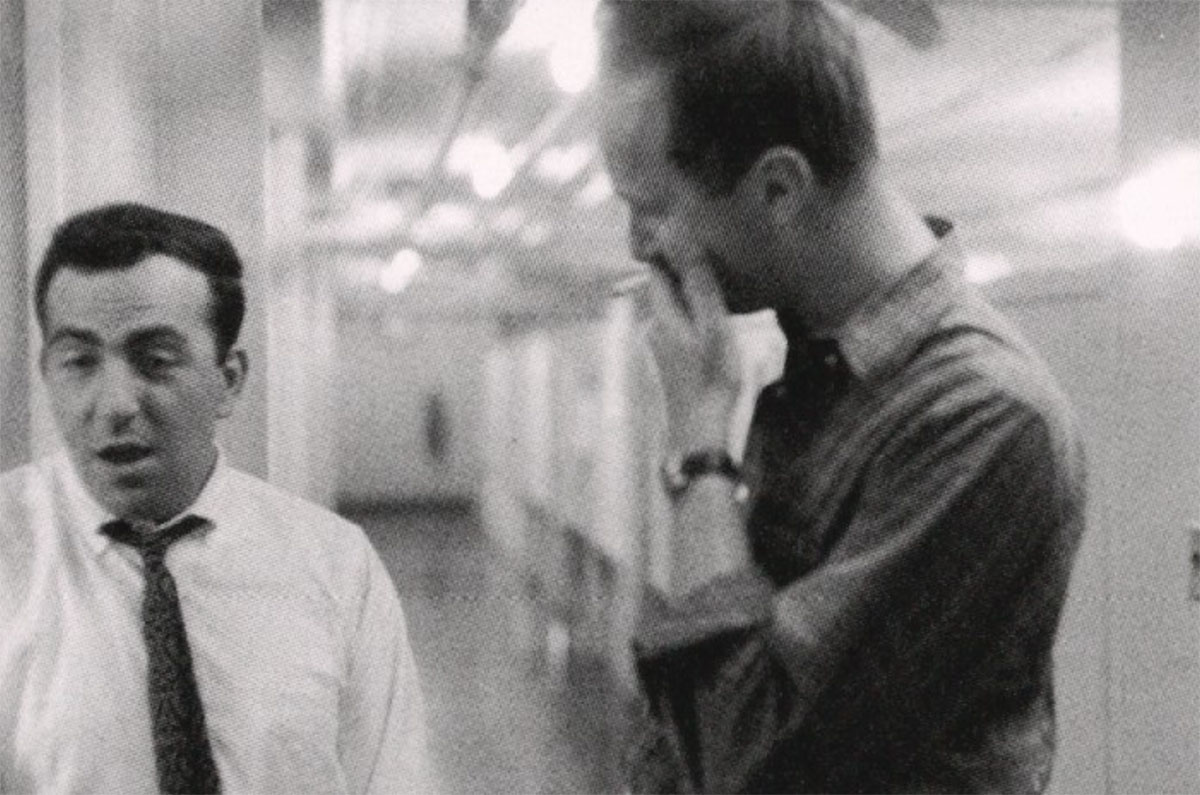

Jules Feiffer, Cartoonist Who Worked At Terrytoons And Wrote ‘Popeye’ Feature, Dies At 95
Jules Feiffer, the screenwriter of Robert Altman’s decidedly weird live-action Popeye (1980) starring Robin Williams, died Friday, January 17, at home in Richfield Springs, New York. He was 95 years old.
Feiffer worked across many creative fields, but he was most well known as a cartoonist, and in 1956, he began a 40-year run drawing the satirical Sick, Sick, Sick for The Village Voice. The strip, later called Feiffer, was eventually syndicated to over 100 newspapers and magazines.
In the early years of the comic, when the Voice didn’t pay Feiffer for his work, he got a job working in animation at New Rochelle, New York’s Terrytoons, under the studio’s short-lived Modernist regime overseen by Gene Deitch. Feiffer had previously applied to work at UPA-NY, when Deitch was its creative director, but his highly personal style wasn’t appropriate for the company’s direction at the time. But, Deitch recalled that hiring Feiffer at Terrytoons was a priority for him:
Among my first acts was to hire Jules Feiffer! He was just the man to help me instill new life in that moribund studio. I put him in the story department, along with my other new recruits, Al Kouzel, Eli Bauer, and studio stalwart, Larz Bourne. The atmosphere was also charged with great external creators such as R.O. Blechman, and Ernie Pintoff. Jules’ first work for me was on my story team for Tom Terrific! He made sharp contributions to the stories and dialog.

Feiffer himself said in an interview that it was one of the first times he felt he fit into an artistic environment:
I met people I really liked, and whose talents I respected. I mean, at these other jobs there were a lot of people I liked, but not necessarily people doing work that I cared about or meant anything to me. But when I went to work for Terrytoons, I guess in ‘56, there was a man I never heard of named Ernie Pintoff doing a cartoon called Flebus which I think is still a brilliant piece of work. There was a man I never heard of named Bob Blechman, who was going up on the same train I was, working on an animated version of The Juggler of Our Lady. There was a lot of talent around. So, for the first time, I felt that I was among constituents, that there were peers around.
Besides working on Tom Terrific, Feiffer contributed to theatrical shorts at Terrytoons, including writing The Tale of a Dog, and also developed the unproduced series Easy Winners, for which a test pilot can be viewed below:
In 1960, Deitch and Rembrandt Films produced the short Munro based on an illustrated story by Feiffer about a four-year-old boy who is accidentally drafted into the U.S. military. The film, for which Feiffer also drew the storyboards and which was animated in Czechoslovakia, went on to win the Academy Award for animated short, becoming the first foreign film to ever win the category.
After his early work in animation, Feiffer’s work went in countless directions, and he wrote novels, stage plays, non-fiction, and children’s books, in addition to continuing as a cartoonist, both on his own strip and as a magazine cartoonist in high-profile venues like The New Yorker and Playboy.
While some of his later children’s books were adapted into animated works (Bark, George; I Lost My Bear), Feiffer didn’t directly work in animation after the 1950s. Still, he remained involved with animation-themed projects throughout his career, perhaps most notably the notorious Robert Altman adaptation of Popeye (1980), for which Feiffer penned the script.
A musical take on E.C. Segar’s classic creation, the oddball film has earned a cult following in the decades since its release. Feiffer himself was proud of the effort, but acknowledged in a Comics Journal interview that it could have been better. “My struggle with [Altman] was to keep his film in the background while my film and Segar’s was in the forefront,” he said. “And sometimes I won at that, and sometimes I lost. I figured I didn’t do too badly, because about 60% of what I wrote got on the screen, but I think that if the other 40% got on it would have been better. As it was, I don’t think the film turned out badly. I think the worst part of the film is the last half-hour or so, which is after I had been worn out and left Malta, and he was free to do his art in peace, and certainly did.
Another notable animated piece using Feiffer’s creative output is the short film Boomtown (1985), which was the first professional short by indie animation legend Bill Plympton. Originally written as a song by Feiffer for National Public Radio about the absurdities of military spending, Plympton adapted it into a short:
For an extended obituary that looks at Feiffer’s other accomplishments, see this piece on The Comics Journal website.

